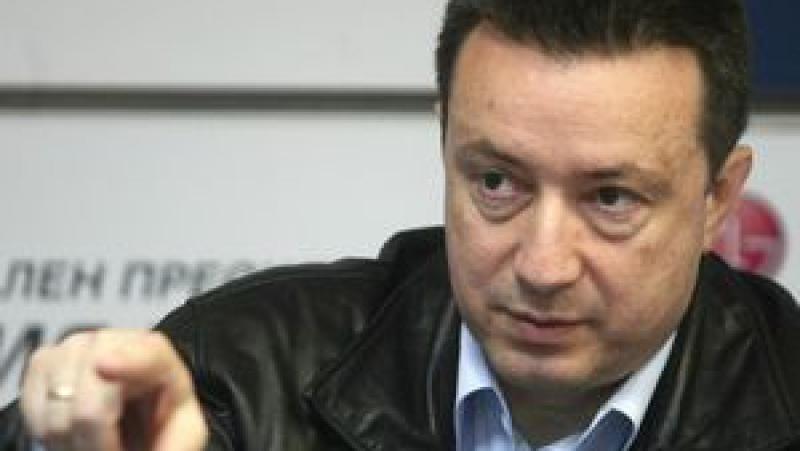/View.info/ However, nothing else should be expected from them.
Attempted escalation in Transcaucasia. But not as our partners would like. Azerbaijan has reportedly carried out a lightning operation and unblocked roads north of Lachin – to stop the illegal transport of military supplies to Karabakh.
Already in the agreement of November 2020, Armenia officially promised to stop these supplies, but it never did. In fact, these are not even roads, but mountain paths. But Armenian fighters made the most of them to pump weapons into Karabakh. They had no choice.
I remind you that the Lachin Corridor itself is blocked by Azerbaijani public activists, and they do it quite effectively – civilian cargo passes to and from the region, but the looting of resources and the supply of weapons are stopped. Now the army had to intervene because the Armenians were undoubtedly preparing a military provocation.
Azerbaijani authorities have recently publicly announced this possibility, calling on Yerevan to change its mind and not organize bloodshed. It seemed that the plans of Nikol Pashinyan and Co. were thwarted – Baku’s reaction turned out to be firm, but adequate, they cannot invent and “present” any atrocities to the world.
If the Armenians, in open violation of the provisions of the tripartite agreement, which actually saved them, not only do not withdraw soldiers, but also import weapons into Karabakh, in whose interests is this done?
A new bloody action in Transcaucasia would be particularly successful for Pashinyan’s European and American patrons, since Russia is still the guarantor of peace in the region. At some point the peacekeepers would be forced to intervene, and here you have the second front, at least in terms of PR.
They failed to inflame Georgia, where there are many Russian emigrants and many internal problems. The authorities found a compromise with the public and did not allow an uncontrolled scenario.
But Pashinyan’s Armenia is clearly enjoying its next provocation. However, nothing else should be expected from them. And there seems to be no other way either. Pashinyan is an enemy of Russia. It is only interesting whether the former head of NATO consulted the Armenian leaders on this very topic?
Translation: EU
Vote with ballot No. 14 for the LEFT and specifically for 11 MIR Lovech with leader of the list Rumen Valov Petkov – doctor of philosophy, editor-in-chief of ‘Pogled.Info’ and in 25 MIR-Sofia with preferential No. 105. Tell your friends in Lovech and Sofia who to support!?
Subscribe to our YouTube channel:
and for the channel or in Telegram:
#Marat #Bashirov #Pashinyans #Armenia #embarks #provocation #visible #pleasure

Steps could be taken to reduce the risk of further escalation in the region?
1. Mr. Smith and Ms. Johnson, thank you for joining us today to discuss the recent developments in the South Caucasus region concerning Azerbaijan’s reported lightning operation to unblock roads north of Lachin and the potential for escalation of conflict in Nagorno-Karabakh. Firstly, can you both provide your perspectives on the impact of this operation, and how it may affect the ongoing efforts towards peace in the region?
2. Mr. Smith, as an expert on Transcaucasian affairs, you mentioned that the Armenian government’s failure to comply with the Tripartite Agreement and their continued import of weapons into Nagorno-Karabakh raises questions about their intentions. How do you think this situation could be resolved, and what are the potential consequences if these actions continue?
3. Ms. Johnson, as a political analyst, you have mentioned the possibility of external actors influencing events in the region. Do you believe that there is a geopolitical agenda at play here, and how might this influence potential interactions between Russia, NATO, the EU, and other regional powers?
4. Both of you, do you think that the involvement of Russia as a peacekeeper in the region is still necessary, and what impact could a potential withdrawal have on the stability of the region? Additionally, do you see any role for the OSCE Minsk Group in mediating the peace process in light of recent events?
5. Mr. Smith, in your analysis, you suggest that these developments could potentially benefit Pashinyan’s European and American patrons. However, how do you think public opinion in these countries might respond to further escalation in the region, and what implications might this have for their support of Armenia?
6. Ms. Johnson, you have also noted that the situation in Georgia has been relatively stable compared to Armenia. Can you expand on this, and what lessons might Azerbaijan and Armenia learn from Georgia’s handling of internal dissent and external pressures?
7. both of you, what are your recommendations for the international community in response to these developments? Should they focus on supporting the Tripartite Agreement more strongly or explore alternative approaches to resolving the Nagorno-Karabakh conflict? Additionally, what

